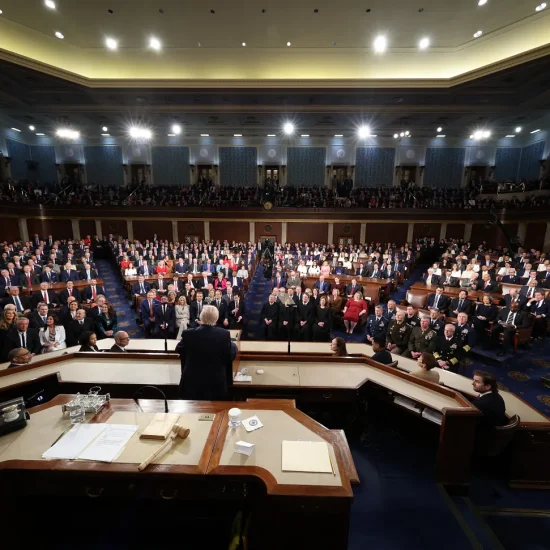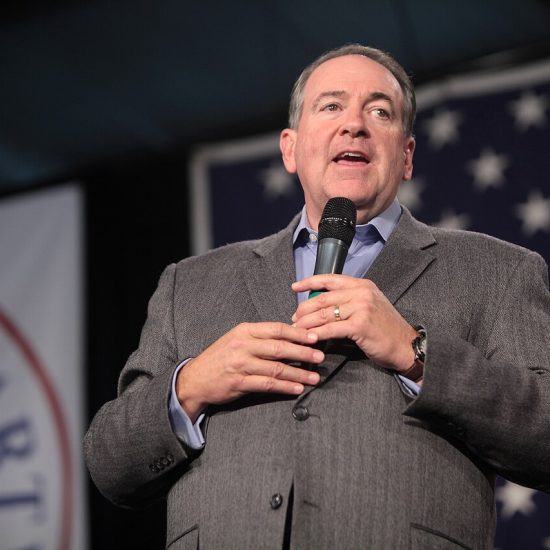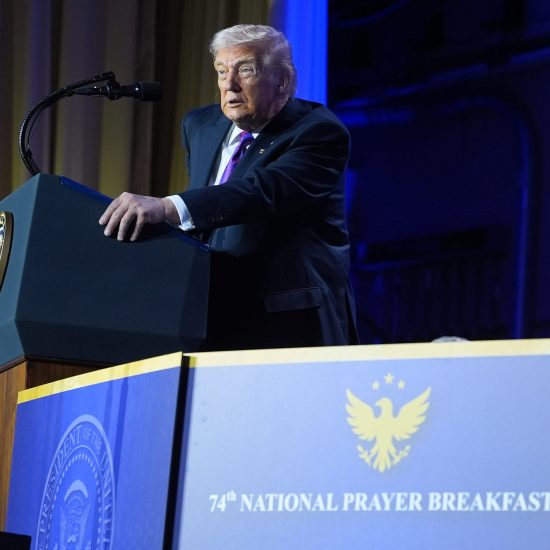
(RNS) — In 2017, Texas-based televangelist Kenneth Copeland told his followers he received a very specific message from the Holy Spirit: The Lord had set aside a luxury Gulfstream V jet for his ministry’s use.
Copeland purchased the jet — in cash — from renowned filmmaker Tyler Perry in November of that year and soon released a celebratory video, along with an ask for another $2.5 million for upgrades.
“Let’s be aggressive in our faith, in our giving and in our harvesting!” the January 12, 2018, post said.
Copeland is one of a handful of prosperity gospel pastors who insist that jets are essential to their ministry. “If I flew commercial, I’d have to stop 65% of what I’m doing,” Copeland told Inside Edition in 2019.
These luxury-loving pastors — including Creflo Dollar and Jesse Duplantis — will be doling out extra dough for personal flights on ministry-owned aircraft, according to a tax update released last month. Watchdog organization Trinity Foundation, which monitors religious fraud, reported last week that the Internal Revenue Service ramped up the tax rate for “non-commercial flights on employer-provided aircraft” taken between Jan. 1, 2023, and June 30, 2023.
When taxpayers fly on employer-owned jets for personal reasons, they must include the value of that flight in their gross income. The update shows that taxpayers will need to pay a $52.35 terminal charge for each personal flight — an $8.17 increase from the previous rate — as well as up to $0.28 a mile, depending on the length of the flight.
These changes apply to pastors, too.

A Gulfstream jet on the tarmac of Napa County Airport in California. Photo by Chris Leipelt/Unsplash/Creative Commons
“To the extent that they take personal flights on church-owned private jets, from a tax perspective, those flights will now be slightly more costly to them,” explained Samuel Brunson, an associate dean at Loyola University in Chicago who researches religion and the tax system.
He added that while a tax-exempt organization would typically have to report whether they use such flights on IRS Form 990, churches are exempt from filing 990s, keeping the public in the dark about whether they fly ministry-owned jets for personal use.
That’s where the Trinity Foundation comes in. For decades, president Pete Evans has been tracking ministry-owned jets, taking note when they’re flown for pleasure instead of business. Today, Trinity Foundation staff investigator Barry Bowen keeps daily tabs on televangelists’ private jets, posting screenshots of the flights on the @pastorplanes social media accounts.
“Regarding some of the taxes that should be paid on personal flights, we doubt that some of these taxes are being paid,” Bowen told Religion News Service in a phone call from the foundation’s office in Dallas. “A 990 will disclose if they use private or charter aircraft. But most televangelists don’t provide that information to their donors, so we’re doing it for them.”
Evans added that by tracking pastor flights, Trinity Foundation hopes the public will ask Congress to better monitor how religious groups use their finances.
“Most of the televangelists we investigate claim to be a church, even though the church is a minor part of the organization. The largest part of it is online donors and their ministries. We’re trying to encourage more transparency and more accountability.”
Bowen and Evans call themselves “sold out” believers, and both attend small local churches. But they each recall becoming disillusioned by prosperity gospel preachers who they believe manipulate the gospel to accumulate wealth.
“My grandmother would donate to Robert Schuller,” Evans recalled, “so probably a huge part of my mother’s inheritance was frittered away to build a Crystal Cathedral in California.” Bowen still recalls flipping through TV channels in the early 2000s and watching Murdock tell viewers that if they sowed a seed on their credit card, God would erase their credit card debt.
“At that point, I made a commitment to start investigating them, to do what I could to oppose the prosperity gospel. It was a defining moment,” Bowen said.
While jet-owning televangelists are both highly influential and highly visible, these tax changes will only impact a small subset of pastors, Brunson said, noting that few pastors work for congregations wealthy enough to own private jets. He added that the IRS issues such changes and updates on a regular basis.
“It’s relevant to pastors, but it’s not really a surprise,” he said.
But for those like Bowen and Evans who want to hold pastors accountable for their finances, staying up-to-date on these tax changes is a must.
“We believe in donor responsibility, and a lot of donors have no idea how much money has been wasted on travel expenses by some of these people,” said Bowen.
This story has been updated to show that Mike Murdock’s ministry no longer owns a jet.






